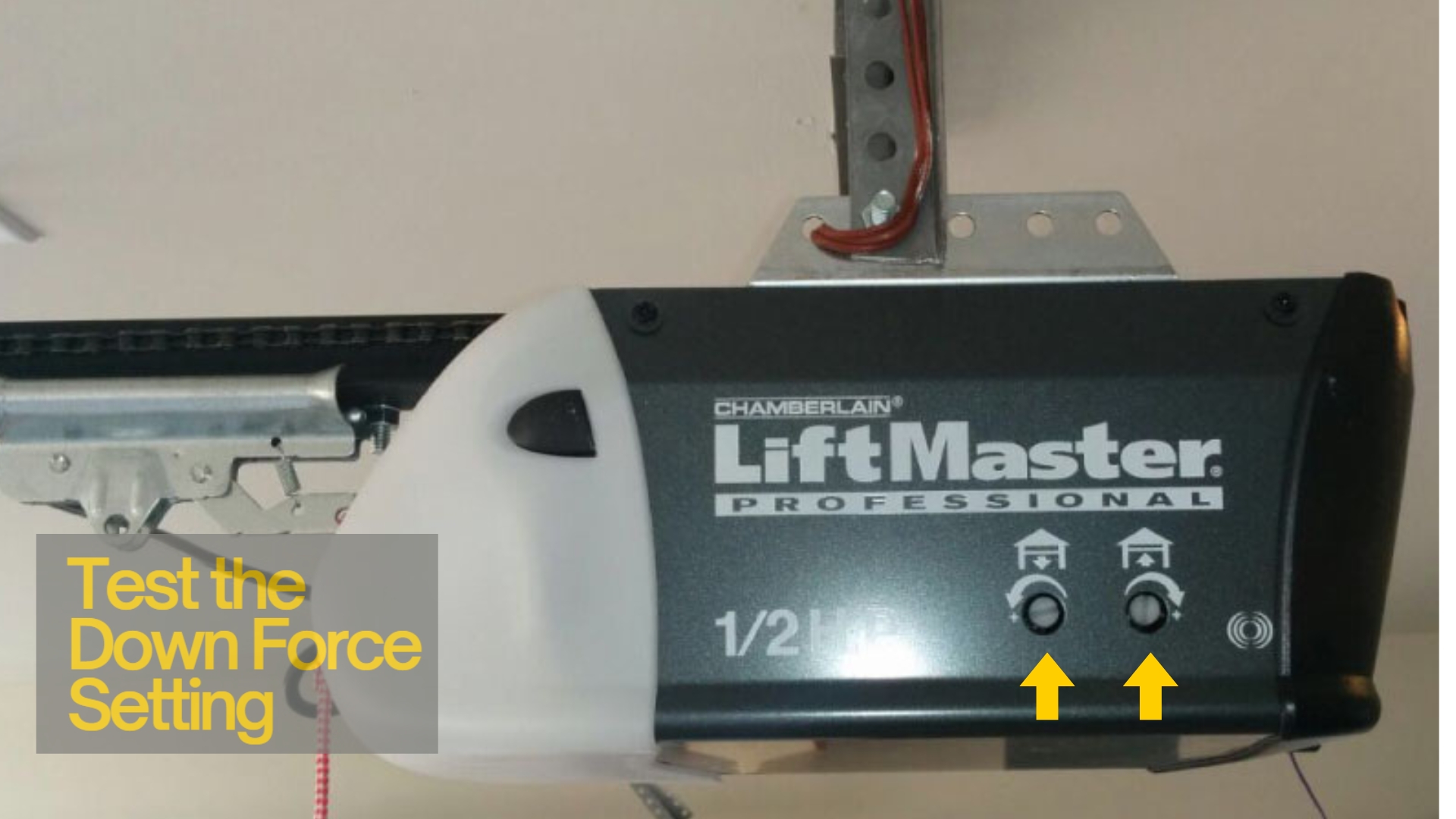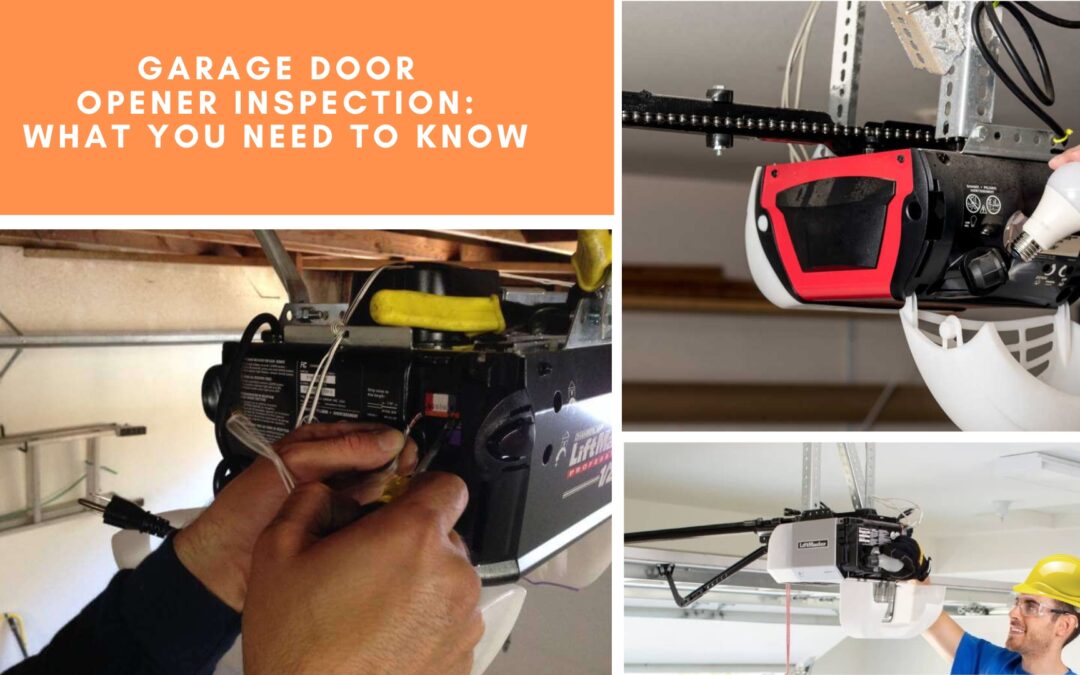Your garage door, which goes up and down a lot, is one of the most used parts of your home. However, can you still recall when was the last time you had it checked? Poorly working garage door openers can be dangerous and even fatal, according to the U.S. Consumer Product Safety Commission. That makes it important to do a regular garage door opener inspection.
In this piece, we will guide you through the basic garage door opener inspection. Whether you are a seasoned DIY enthusiast or new to home maintenance, this guide will also help you understand what to look out for. Stay with us as we cover all you need to know to make sure your garage door is safe and working well.
Signs You Need a Garage Door Opener Inspection
Is your garage door opener acting up? Sometimes, the signs can be subtle, so knowing the signs can help you avoid bigger problems in the future. Your garage door opener may need to be looked at more closely if any of these things occur:
Unusual Noises
Your garage door should run quietly. If it makes grinding, scraping, or whirring sounds, that means something might be off. These noises could point to problems with the garage door motor, gears, or other garage door parts.
Slow or Hesitant Operation
Is your garage door taking longer than usual when you open or close it? Or are there times when it stops in the middle of the process? It could be a sign of a faulty mechanism. That could be due to an old motor, blocked garage door tracks, or the rollers being out of alignment.

Intermittent Operation
Does your garage door sometimes refuse to open or close? Or does it stop and start while moving? If yes, it is a sign that you need to do a thorough garage door opener inspection. Electrical problems, like bad wiring or a broken circuit board, might cause this.
The Door Does Not Fully Open or Close
It is not only inconvenient but also unsafe if your garage door does not close all the way or opens partially, leaving gaps. It could happen because of misaligned photo-eye sensors or if the door is off its track.
Increased Energy Bills
When your garage door opener is under too much strain, it has to work harder and use more electricity. If your energy bills go up all of a sudden, your garage door opener may be having trouble.
What Does a Garage Door Opener Inspection Involve?
A garage door opener inspection is a key part of making sure your garage door works safely and lasts a long time. Here is how to check the garage door opener like a pro:
Visual Inspection
First, look closely at your garage door opener. Check for any signs of worn-out or broken parts, like frayed wires or rusty components. Also, check to see if the attached mounting brackets to the ceiling are firm and secure. This step will ensure the garage door opener does not shake too much when it is operating.
Test Safety Features
- Reversing Mechanism: This feature stops the garage door and makes it go back up if it hits something while closing. Test this by placing an object like a roll of paper towels under the door. If the garage door does not stop and reverse when it touches the object, the reversing mechanism needs adjustments or repair.
- Photo Eye Sensors: Most of the time, these sensors are near the bottom of the garage door frame. They should be clean, aligned, and free from any debris. Try blocking the beam with something and see if the door stops closing.
Check Remote Controls and Keypads
Make sure all your garage door remotes and keypads work properly. Change the batteries if they seem weak, and check if they have a good connection with the garage door opener.
Test the Down Force Setting
The down force setting controls how much force the garage door opener uses to close the door. To test the force, close the garage door with an object like a piece of wood underneath. If the door does not reverse upon contact, the force is too high. You can adjust this by finding the dial labeled “force” or “sensitivity” on the opener unit. Turn it towards less force until the door reverses upon contacting an obstruction.

Check Opener Travel Limits
Travel limit determines where the door stops when opening and closing. Check if your garage door does not fully close or open or slams into the ground. To adjust, find the “up limit” and “down limit” controls on the opener. Adjust these using a screwdriver, turning them clockwise to extend the travel and counterclockwise to reduce it.
Garage Door Lubrication
The garage door opener does not need much lubrication, but check the manual to see if any parts do. That will keep the motor from having to work too hard.
Listen for Noise
When you operate the garage door, listen for any unusual sounds like grinding or rattling. These noises can be signs that something is wrong inside the opener.
Check Chain or Belt Tension
If your opener uses a chain or belt, check that it is not too loose or too tight. Proper tension helps the garage door opener work efficiently and prevents premature wear and tear.
When to Seek Help From a Garage Door Technician
When your opener has issues that seem complex, it is always best to call in a garage door professional. A trained technician can handle complex problems and ensure everything works as it should. Regular garage door opener inspection can catch issues early, keeping your opener running smoothly and safely for years. If you are unsure about how to fix something, calling in an expert is a smart and safe choice. This way, you avoid bigger problems and ensure your system stays in good shape.
Garage Door Maintenance Near Me
Are you in Omaha, NE, looking for reliable garage door services? Titan Garage Doors NE is here to help! Our licensed technicians specialize in a wide range of garage door services, including maintenance, repair, and new garage door installation. Do not let garage door opener issues disrupt your day. Trust our experienced team to provide professional, efficient service that keeps your garage door in perfect condition. Contact us today for a free estimate.
